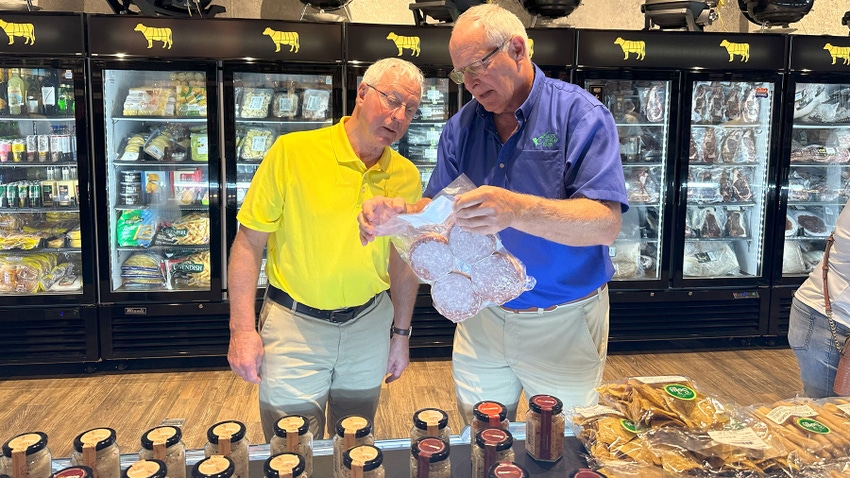
Why will virtual meetings and events never totally replace traveling by airplane or car in person to far-away places? Because there is real value in meeting people face to face and seeing their challenges and methods with your own eyes.
Mike Koehne certainly thinks so. The immediate past chairman of the Indiana Soybean Alliance and current member of the executive board of the Soy Transportation Coalition is a firm believer in seeing things in person. Koehne, Greensburg, Ind., recently traveled to Panama with delegates from the Indiana Soybean Alliance and Indiana Corn Marketing Council. While there, he participated in a Soy Transportation Coalition board meeting and rode a ship through the Panama Canal.
Value of trade trips
“It’s no vacation,” Koehne explains. “It’s a go-go-and-learn scenario. We take these trips to see how projects we support are progressing, and how they can help us ‘move the pile’ of corn and soybeans that we produce here.”
Organizations that work on behalf of U.S. growers in Panama and other countries include the U.S. Meat Export Federation, USA Poultry and Egg Export Council, U.S. Soybean Export Council and the U.S. Grains Council. They rely on support from the U.S government and checkoff programs to carry out marketing and educational efforts aimed at encouraging local people to consume more U.S. ag products, Koehne says.
“These organizations are boots on the ground in these countries, and we need to continue supporting them with checkoff investments,” he says. “You see this clearly in displays and promotions of U.S. products in these countries that import our ag commodities. It’s great that U.S. farmers invest back into themselves in this way.”
Seeing is believing
Tim Gauck, Greensburg, Ind., president of the Indiana Corn Marketing Council, looked for evidence that promotions and projects underway in Panama help improve demand for U.S. grains. He found what he was looking for, Gauck says.
“Central America is a relatively easy place to export American goods because they speak English, and labels don’t need to be changed,” he begins. “Most countries don’t have import tariffs. Panama does, but it is slated to go away this decade. If we can sell more meat there, we move more grain as feed for the animals.”
Gauck and others visited various types of food markets, from a wet market where fresh meat is sold, to a typical supermarket, to a high-end market. “The average supermarket was very much like we have here,” he explains. “The high-end market was unique. They served food and wine to eat, and then customers could buy meats that they ate and liked. It was different but appears to work. The high-end market only sold American meat.”
Gauck was also impressed by their growing aquaculture industry. “About 35% of diet for fish is soybean meal and the rest is DDGS from ethanol,” he says. “They don’t produce ethanol, so that is a market for U.S. ethanol producers.
“People from the groups we support told us that while U.S. grain may not be the cheapest, it is the highest quality. It’s to our benefit to continue producing and shipping high-quality grain.”
About the Author(s)
You May Also Like




